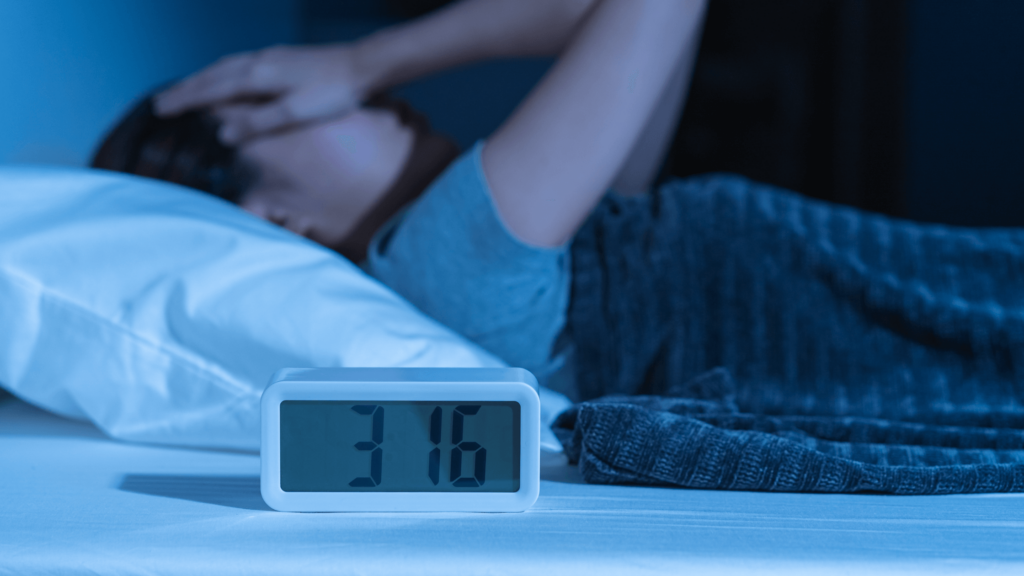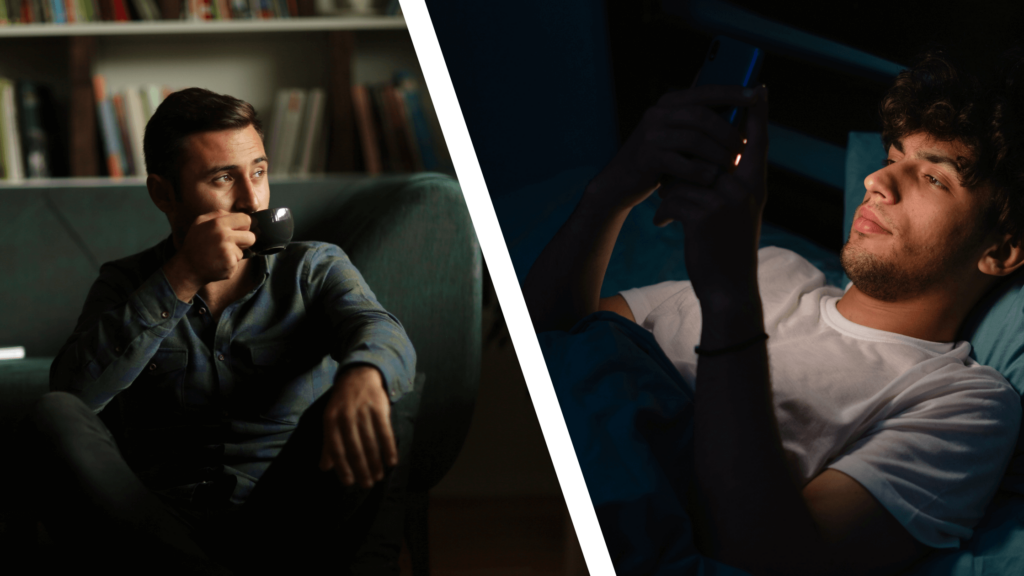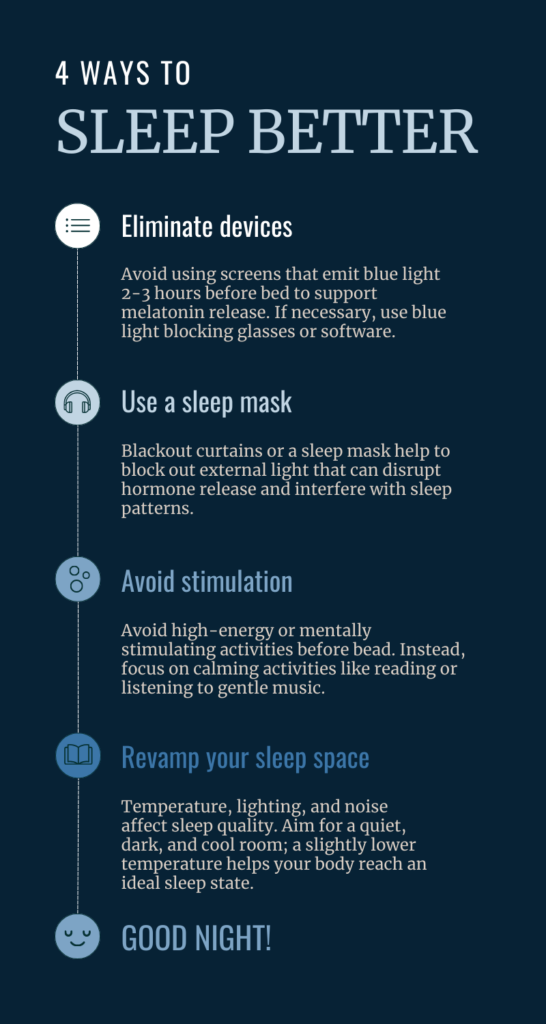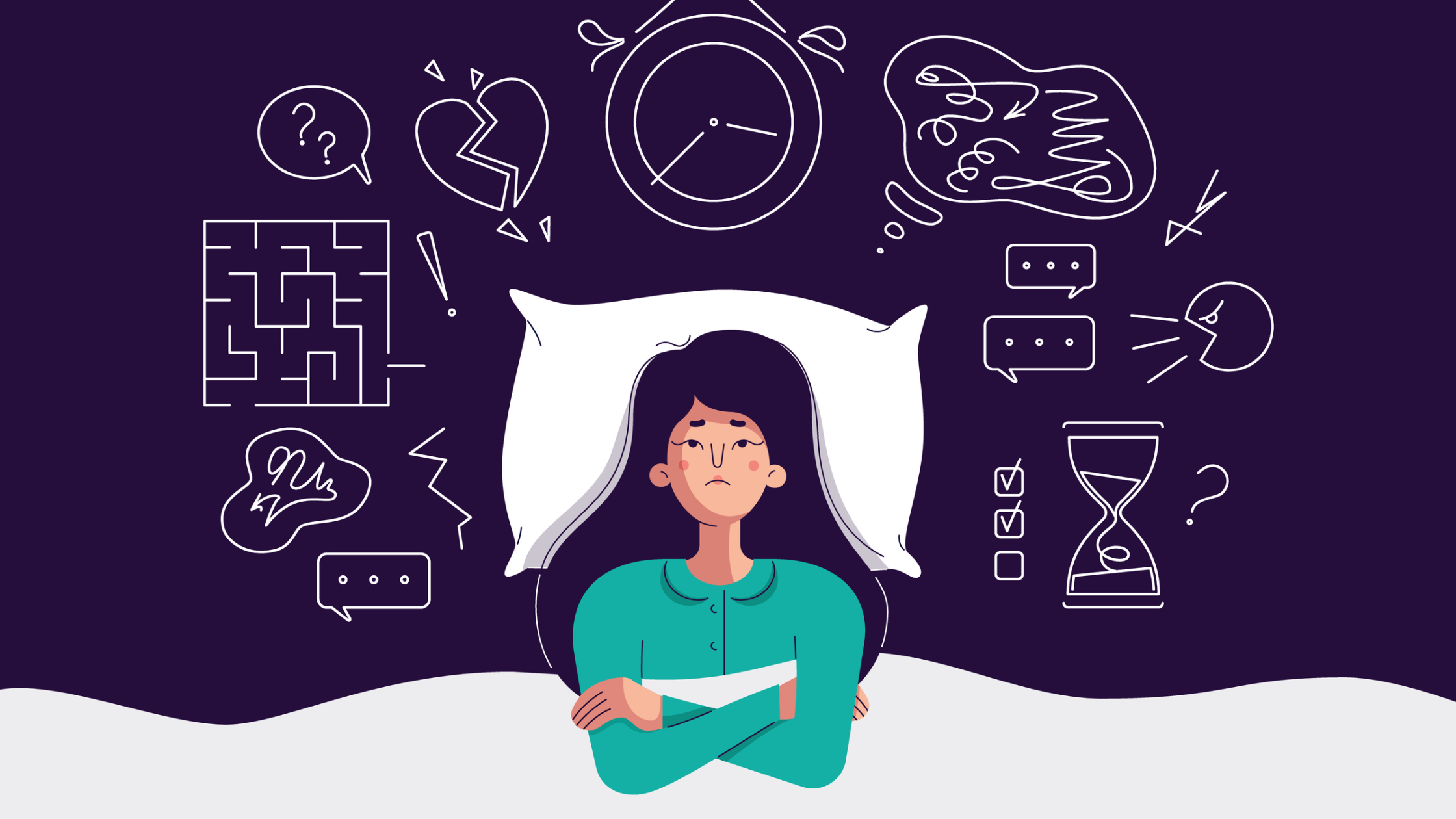Sleep deprivation isn’t just exhausting; it can be downright dangerous in construction. Insomnia, a common sleep disorder, robs millions of the rest they need, but for construction workers, sleepless nights can significantly increase the risks of workplace accidents and slow project timelines. Operating heavy machinery or working at heights demands sharp attention, and even minor sleep loss can increase the risk of accidents. Understanding the causes of insomnia and addressing its triggers, like alcohol consumption or an unhealthy sleep environment, can help workers get the restorative sleep they need to stay safe and perform at their best.
Quick look
- Insomnia affects millions, making it difficult to fall asleep, stay asleep, or feel rested. It impacts health, mood, and daily function.
- The two main types of insomnia—acute and chronic—are often triggered by stress, anxiety, health conditions, or disruptive habits.
- Small lifestyle changes, such as reducing screen time, avoiding caffeine and large meals before bed, and maintaining a calming sleep environment, can support better rest.
- For persistent insomnia that impacts daily life, seeing a doctor can provide additional options and insights to improve sleep quality.
What is insomnia?

Insomnia is a common sleep disorder that makes it challenging to fall asleep, stay asleep, or get enough restful sleep. For many, it’s not just about the occasional sleepless night; insomnia can stretch on for days, weeks, or even months. Insomnia affects millions, making it difficult to fall asleep, stay asleep, or feel rested. It impacts health, mood, and daily function. According to the National Library of Medicine, insomnia is estimated to affect between 30-35% of adults in the U.S., with about 10% experiencing chronic insomnia that impacts their daily lives.
This lack of sleep doesn’t just leave you tired—it can affect your mood, focus, productivity, and overall health. Even the simplest tasks can feel more arduous when you’re not sleeping well, and it’s easy to feel a little out of sync with daily life. Understanding what’s behind insomnia can help you find ways to sleep better and feel more like yourself.
Insomnia isn’t one-size-fits-all; it comes in several forms and can affect people differently. Understanding which type you’re dealing with can help you find the right management approach.
Acute insomnia
Acute insomnia is the short-term variety that often pops up during stressful times. Construction workers frequently face tight deadlines or early work hours, leading to acute insomnia during high-pressure periods. It’s typically a reaction to what’s happening around you and usually resolves on its own once the stress eases or life settles down.
Chronic insomnia
Chronic insomnia is more persistent, lasting a month or longer. It often has deeper roots—such as ongoing health issues, anxiety, or certain habits that disrupt sleep. Unlike acute insomnia, chronic insomnia doesn’t just fade with time and may need a closer look at what’s fueling it, whether it’s lifestyle choices or medical factors.
What does insomnia feel like?
Insomnia isn’t just the occasional bad night’s sleep—it’s a pattern of sleep issues that can disrupt both your nights and days. People with insomnia often struggle to fall asleep, lie awake in the middle of the night, or wake up way too early, unable to drift back to sleep. Even with a whole night in bed, insomnia can leave you feeling exhausted, unrefreshed, and a step behind. This lack of quality sleep can compound job site risks like misjudging measurements, missing safety protocols, or reduced physical endurance, making even the most minor tasks more challenging. If these sleep issues persist, it’s a sign that insomnia might be at play.
Why can’t I sleep?
When sleep becomes elusive, more than one factor is often involved. These causes can sometimes work together, creating a tough-to-break cycle of sleeplessness.
- Chronic stress: Persistent worry or anxiety can keep your mind racing, making it hard to relax enough to fall asleep. Stressors such as unpredictable workloads, physical exhaustion, and job-site hazards can keep workers awake at night, exacerbating sleep issues.
- Trauma: Emotional or psychological trauma, whether recent or from the past, can lead to insomnia. Trauma impacts the nervous system, sometimes keeping the body in a “high alert” mode that interferes with restful sleep.
- Underlying medical conditions: Health issues like chronic pain, breathing difficulties, or hormonal imbalances can make sleep a struggle. Conditions such as arthritis, asthma, or thyroid disorders can also disrupt sleep, leading to a pattern of restless nights and tired days.
Anxiety as a trigger
Anxiety and insomnia often go hand-in-hand, feeding off each other in a way that can make sleep feel impossible. When you’re anxious, your mind can feel stuck in overdrive, making it hard to wind down at night. This type of insomnia can be intense but is often temporary, showing up around particularly stressful periods like a big work deadline, a personal crisis, or even a significant life event.
The challenge with anxiety-triggered insomnia is that worry can make it hard to fall asleep and disrupt sleep quality when you do. Even minor worries can feel amplified in the quiet hours of the night, leading to restless or broken sleep. Understanding that anxiety might be the culprit can help you manage these feelings, allowing for better, more restful nights.
Habits that can cause insomnia

Sometimes, our daily habits play a more significant role in sleeplessness than we realize. Certain lifestyle choices can interfere with our natural sleep cycles, making it harder to get quality rest.
- Alcohol or caffeine near bedtime: While alcohol might seem relaxing, it disrupts deep sleep cycles, leaving you more restless through the night. Many construction workers rely on caffeine or energy drinks to stay alert on the job, but consuming these too late in the day can disrupt sleep cycles.
- Large meals close to bedtime: Eating a big meal late in the evening can lead to discomfort and indigestion, which can interfere with sleep. Give your body time to digest by curbing eating a few hours before bed.
- Using screens in the evening: Blue light from phones, tablets, and computers signals your brain to stay awake, delaying the release of sleep hormones like melatonin. A screen-free wind-down period before bed can make a noticeable difference.
- Irregular sleep schedules: Frequent shifts, travel, or inconsistent habits can shift your sleep and wake times, throwing off your internal clock and making it difficult to establish a natural sleep routine.
Can light therapy help insomnia?
Light therapy has shown promise in helping people manage insomnia, especially for those with disrupted circadian rhythms, such as construction workers or people who struggle with seasonal sleep issues. This therapy involves exposure to a specific bright light that mimics natural sunlight. Light therapy can simulate morning sunlight for workers who begin shifts before sunrise to help reset the body’s internal clock and improve alertness. Using a lightbox for a set period each day—usually in the morning—encourages a natural sleep-wake cycle, making it easier to fall asleep at a consistent time.
The Sleep Foundation highlights that while light therapy can be effective, it’s essential to follow best practices for the best results. Timing and consistency are critical; light therapy should be done regularly, ideally at the same time each day. Additionally, it may not work for everyone. For some, the effect can be gradual, requiring a few weeks to see noticeable improvements. Individuals with specific eye conditions or sensitivities to light should consult a doctor before starting light therapy, as it may have limitations or require adjustments.
While not a cure-all, light therapy offers a noninvasive way to improve sleep quality, especially for those who struggle to sync their internal clocks with the natural day-night cycle.
Change your habits and environment for better sleep
Small changes in your routine and environment can make a big difference in improving sleep quality. Here are a few simple steps to help you get the restful sleep you need:
- Eliminate devices before bed: Set aside your phone, tablet, and computer at least an hour before bed. The blue light from screens can trick your brain into staying alert by suppressing melatonin release, so a screen-free wind-down can make it easier to fall asleep. If absolutely necessary, consider blue light blocking glasses or software.
- Use a sleep mask: A sleep mask can block out any lingering light, helping your body stay in sleep mode longer. A mask is a great way to support deep sleep, especially if complete darkness is hard to achieve in your room.
- Avoid stimulating activities before sleep: Engaging in high-energy or mentally stimulating activities, like intense exercise, heated discussions, or work-related tasks, can prevent your mind and body from fully relaxing. Instead, try focusing on calming activities like reading or listening to gentle music.
- Maintain a cool, dark, quiet bedroom: Temperature, lighting, and noise affect sleep quality. Aim for a quiet, dark, and cool room; a slightly lower temperature helps your body reach an ideal sleep state. If you work odd hours, creating a sleep-friendly environment with blackout curtains or noise-canceling devices can help you catch up on rest during the day.

If insomnia wakes you up in the middle of the night…
It can be frustrating, but waking up in the middle of the night is more common than you think. Here’s how to handle it calmly so you can drift back to sleep.
Don’t stress about it
First, remember that waking up at night is normal, and stressing over it can make falling back asleep even harder. Try to accept the moment as part of a natural sleep pattern. Remind yourself that you’re giving your body a chance to relax, making it easier to ease back into sleep.
Aim for relaxation, not sleep
Instead of focusing on falling asleep right away, try shifting your goal to relaxation. Letting go of the pressure to sleep can help calm your body and mind. Techniques like deep breathing or gentle stretching can help you relax without overthinking the need to rest.
Do a non-stimulating activity
If you’ve been awake for a while and don’t feel drowsy, consider doing a quiet, non-stimulating activity. Read a few pages of a calming book or listen to soothing music. Avoid screens and anything that feels too mentally engaging. These low-key activities can help you ease back into a restful state without forcing it.
When to see your doctor
Sometimes, insomnia needs more than lifestyle changes to improve. Persistent insomnia can lead to daytime issues like low energy, trouble focusing, irritability, or even mood changes. If sleeplessness is affecting your ability concentratecus or stay safe on the job, seeking professional help is critical—not just for your well-being but for the safety of your team.
Bottom line
Insomnia can be challenging, but there are ways to manage it and improve sleep quality. Small lifestyle changes—like reducing screen time before bed, creating a comfortable sleep environment, and managing stress—can make a big difference. Light therapy may offer additional support for those with irregular sleep patterns. And if sleep troubles persist despite your best efforts, reaching out to a doctor can provide further insights and relief. Prioritizing sleep health is essential for overall well-being, and with a few mindful adjustments, restful nights can become a reality.
Like this and want more? Subscribe to our weekly newsletter and follow us on social media for more tips and advice for staying healthy in the construction industry.


